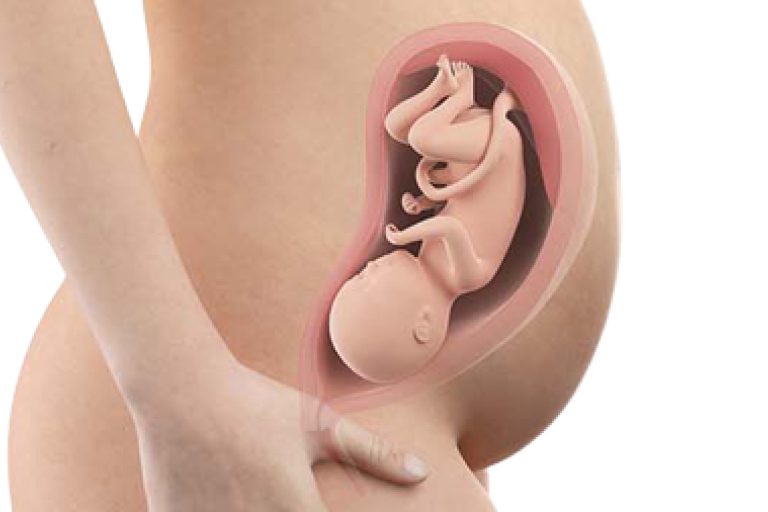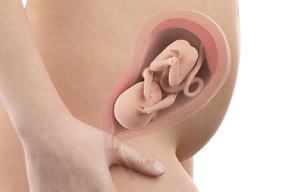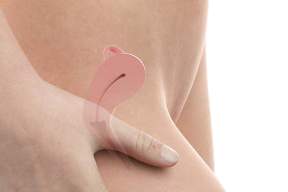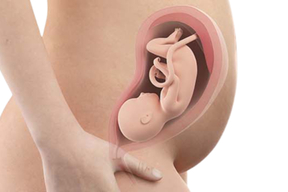I feel blah!
Your physical changes this week
You could notice yourself becoming short of breath now, especially if you’re rushing about. Try to watch your posture and give your lungs as much room to inflate as they can. It's getting crowded in your belly now, but the simple act of sitting up straight and pulling back your shoulders can give you some much needed space.
Colostrum, the yellowish-clear early milk which is so ideal for newborns, could be leaking from your breasts this week. If you've had a baby before you could find you have more colostrum with your second child. Some women need to wear a nursing pad inside their bra to help with leakage.
Your body's iron stores could be depleting now, so it's very important that you do what you can to boost them. Your body also needs Vitamin C to help it absorb dietary iron. So have plenty of fresh fruits and juice when you are trying to increase your iron intake. Red meat, green leafy vegetables, good quality cereals, dried fruits, and legumes are all good sources of iron.
Your emotional changes this week
Your baby seems to be very much a part of you by now and it's becoming harder to remember a time when you weren’t pregnant. When you’re 31 weeks pregnant, you’ll start to imagine what life will be like after the baby is born, build hopes for the sort of parent you want to be, and develop your own ideas on how you want to care for your baby.
Baby's changes this week
Your baby is spending long periods of time in REM (Rapid Eye Movement) sleep. This stage of sleep is so important that some researchers consider REM sleep a third stage of being along with awake and asleep.
More brain and complex nerve activity this week. The connections or synapses in your baby's brain are forming by the millions and are helped by the stimulation they receive in their insulated little world. Your voice, household noise, filtered light, movement, and music will all help these vital connections to form.
Hints for the week
Aim to eat a handful of nuts every day and don’t shy away from butter, margarine, and even a little cream.
If you have a desk job or spend long hours sitting, make a plan to move every hour. Getting up and going for a walk will help your lower limbs push your blood back through your general circulation. Aim to walk for exercise every day as well. Try to include a hill or two and increase your pace to get your heart rate going a little higher.
Become aware of your baby's patterns of movements. Unless it's been recommended, you don’t need to keep a kick chart, but a general awareness of your baby's movements and activity is a good thing to have.
Week 32 follows.
For more information see Pregnancy or Week by Week.
The information of this article has been reviewed by nursing experts of the Association of Women’s Health, Obstetric, & Neonatal Nurses (AWHONN). The content should not substitute medical advice from your personal healthcare provider. Please consult your healthcare provider for recommendations/diagnosis or treatment. For more advice from AWHONN nurses, visit Healthy Mom&Baby at health4mom.org.










